News
Labour Insists on N250,000 Minimum Wage, Awaits President Tinubu’s Verdict

Organized Labour has steadfastly maintained its demand for a new minimum wage of ₦250,000, rejecting lower offers of ₦62,000 and ₦100,000 proposed by other parties. Chris Onyeka, Assistant General Secretary of the Nigeria Labour Congress (NLC), emphasized that Labour would not settle for a “starvation wage.”
NLC President Joe Ajaero, speaking at the ongoing International Labour Conference in Geneva, Switzerland, stated that they await President Bola Tinubu’s decision on Labour’s proposal. The Tripartite Committee on National Minimum Wage recently submitted its report, which included the differing proposals of ₦62,000 from the government and private sector, and ₦250,000 from Labour.
The Nigeria Governors’ Forum expressed that any minimum wage above ₦60,000 is unsustainable. However, Onyeka reiterated Labour’s stance, highlighting the significant rise in the cost of living and essentials, which necessitates a minimum wage of ₦250,000.
The NLC issued a one-week ultimatum for the Federal Government and National Assembly to act on their demands, warning of potential nationwide industrial action if their demands are not met by the deadline. Ajaero clarified that Labour has not accepted the ₦62,000 proposal and awaits the President’s decision.
Labour leaders criticized state governors opposing the ₦62,000 proposal and called for the decentralization of their wages. They praised Edo State Governor Godwin Obaseki for paying a ₦70,000 minimum wage and urged others to follow his example.
In media interviews, NLC representatives accused the government of financial mismanagement and wasteful practices, blaming these for the country’s economic challenges. They emphasized that Labour’s demands are practical and reasonable, asserting readiness for negotiations conducted in good faith.
News
Investigation Continues as Andrew Released After Historic Royal Arrest
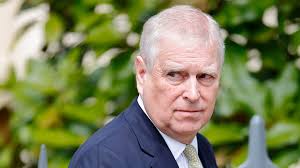
Search efforts and inquiries remain ongoing after Prince Andrew was released under investigation following a day spent in police custody.
More than 19 hours after he was photographed reclining in the back seat of a vehicle upon release, the King’s younger brother remains at the centre of an active inquiry. The 66-year-old spent approximately 11 hours in custody on his birthday after being arrested on suspicion of misconduct in public office.
The development marked the first arrest of a senior royal in modern history.
Following his release, Andrew departed Aylsham Police Station after a lengthy period that involved hours of transport and waiting.
Although no charges have been filed, Andrew has been released under investigation — meaning he is free to resume daily activities for now, but remains subject to further questioning as inquiries progress.
Authorities continue to examine matters linked to properties associated with the Duke, including locations connected to the Sandringham Estate.
According to royal correspondent Helena Wilkinson, Andrew’s legal situation remains unresolved, and he may be required to return for additional interviews as the investigation develops.
News
Andrew arrested on suspicion of misconduct in public office

Authorities have confirmed that Prince Andrew was arrested earlier today on suspicion of misconduct in public office, marking a significant development that is now set to move through the formal legal system.
The arrest took place at a residence on the Sandringham Estate in Norfolk at approximately 08:00 this morning. Police have since continued investigative searches at that property, as well as at his former home located within Windsor Great Park.
In recent weeks, Andrew had relocated from Windsor to establish a temporary base at Sandringham while renovation work progresses on his future long-term residence at nearby Marsh Farm.
The Sandringham Estate, originally acquired in 1862 as a private retreat for the future Edward VII when he was Albert, Prince of Wales, has long remained a cherished country residence passed from monarch to monarch. It continues to serve as a traditional gathering place for the Royal Family, particularly during the Christmas period.
It is understood Andrew has been staying at Wood Farm, a secluded house near the village of Wolferton. The residence holds personal significance, having been chosen by his father, Prince Philip, as his primary home following retirement from public duties in 2017.
Today, Sandringham has seen heightened police presence as the investigation proceeds.
Meanwhile, King Charles III continued with his scheduled public engagements in London, where he was greeted by both questions and expressions of public support upon arrival.
Maintaining continuity and stability, the King chose—like the Queen earlier—to proceed with previously planned duties. In a statement, he reaffirmed confidence in due process, noting that “the law must take its course.”
It has also been confirmed that neither the King nor Buckingham Palace were informed in advance of the arrest, underscoring the independence of the legal process now underway.
News
Police Review Private Flights at Stansted Following Epstein File Revelations

Authorities are assessing new information concerning private jet movements at Stansted Airport after fresh scrutiny linked to the activities of convicted sex offender Jeffrey Epstein.
Essex Police confirmed it is examining details related to private flights arriving at and departing from the airport in light of disclosures emerging from the recently published Epstein files.
The review follows calls from former UK Prime Minister Gordon Brown, who urged in the New Statesman that law enforcement should “urgently” revisit whether Epstein’s victims may have been trafficked into or out of the United Kingdom.
A previous investigation identified 87 flights connected to Epstein that either landed at or departed from UK airports between the early 1990s and 2018.
Stansted Airport has maintained that private aircraft operations are conducted independently, noting that it does not oversee passenger arrangements for privately chartered flights.
The police assessment is part of broader efforts to understand any potential connections between flight activity and trafficking concerns raised in the wake of the latest disclosures.
-

 News4 days ago
News4 days agoPolice Review Private Flights at Stansted Following Epstein File Revelations
-
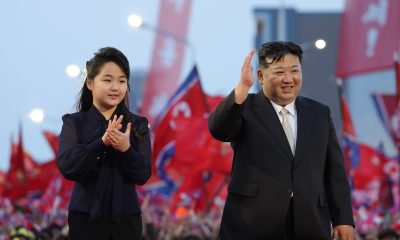
 News1 week ago
News1 week agoKim Jong Un chooses teen daughter as heir, says Seoul
-
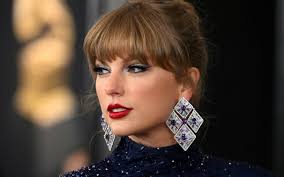
 Entertainment1 week ago
Entertainment1 week agoTaylor Swift asks US government to block ‘Swift Home’ trademark
-
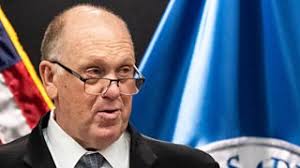
 News1 week ago
News1 week agoMinnesota Immigration Enforcement Surge to Wind Down as Federal Officials Cite “Great Success”
-

 Entertainment4 days ago
Entertainment4 days agoTech-Inspired Musician Look Mum No Computer to Represent UK at Eurovision
-

 News1 week ago
News1 week agoRubio warns Europe of new era in geopolitics before big Munich speech
-
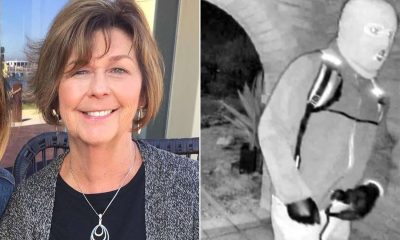
 News4 days ago
News4 days agoDNA Test Yields No Match in Search for Missing Nancy Guthrie
-

 News6 days ago
News6 days agoEleven Killed in Gaza Strikes as Ceasefire Tensions Persist










